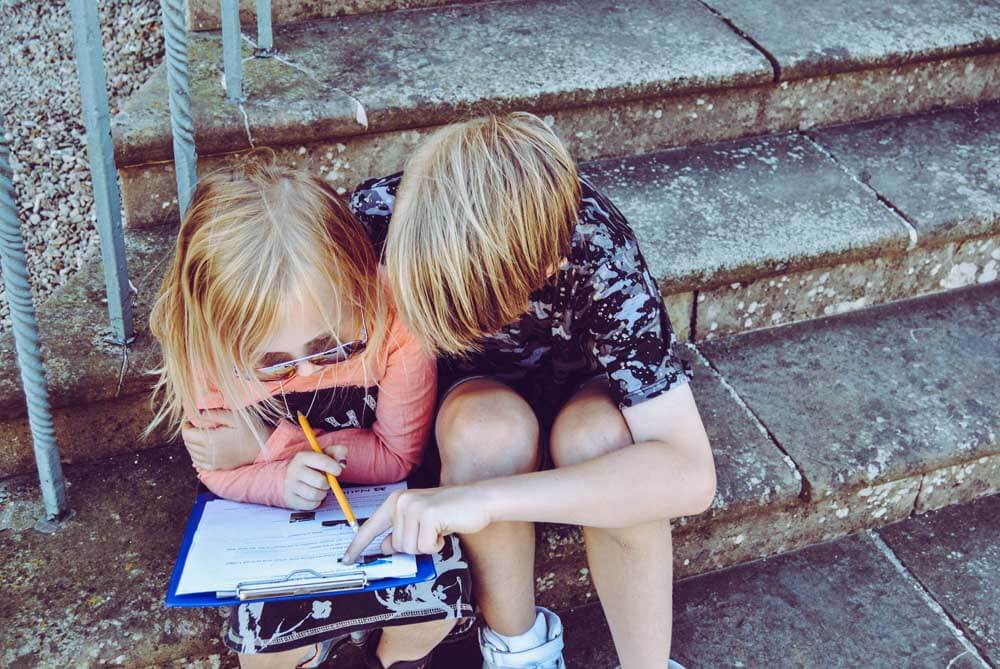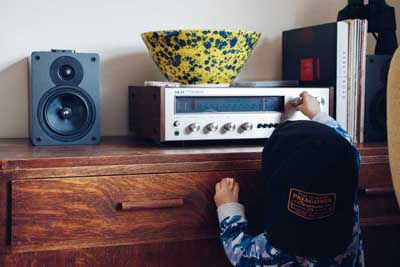Fostering Critical Thinking Skills in Kids: A Path to Future Success
Critical thinking is a vital skill that empowers individuals to analyze information, make informed decisions, and solve complex problems. In this article, we explore the key factors that enhance critical thinking abilities. We'll also delve into practical strategies for improving these skills, providing actionable tips and techniques. Furthermore, we'll discuss how honing critical thinking skills can positively impact future opportunities and success, emphasizing its relevance in education, career advancement, and everyday life. Join us on this journey to unlock the power of critical thinking and discover its transformative effects on your personal and professional growth.

- Key Aspects of Critical Thinking in Kids
- Parameters and Factors Affecting Critical Thinking in Kids
- Enhancing Critical Thinking Abilities in Children
- The Impact of Critical Thinking on Life, Success, and Future Opportunities
- Tools for Success
Critical thinking skills in kids refer to their ability to thoughtfully and independently analyze, evaluate, and process information and ideas. These skills enable children to observe and understand the world around them, ask questions, solve problems, and make decisions based on careful examination and reasoning. Critical thinking in kids involves the development of observational, analytical, and questioning abilities, fostering a mindset of curiosity and logical thinking that lays the foundation for informed decision-making and problem-solving as they grow.
Key Aspects of Critical Thinking in Kids
1. Observation
Critical thinking begins with keen observation. Children learn to pay attention to details, patterns, and nuances in their surroundings, fostering a foundation for analysis.
2. Analysis
Kids develop the capacity to dissect complex concepts or situations into manageable components. This skill helps them comprehend and evaluate information effectively.
3. Questioning
Curiosity is a hallmark of critical thinkers. Encouraging children to ask questions fuels their inquiry-based thinking, promoting exploration and learning.
4. Problem-Solving
Critical thinking equips children with problem-solving abilities. They can identify issues, brainstorm solutions, and choose the most suitable course of action.
5. Decision-Making
As children mature, they learn to make informed decisions. They weigh the consequences of their choices and make decisions based on a careful evaluation of available information.
6. Creativity
Critical thinkers exhibit creativity, thinking beyond conventional boundaries to find innovative solutions to challenges.
7. Communication
Effective communication is a crucial aspect. Kids with strong critical thinking skills can express their thoughts clearly and persuasively, both in writing and speaking.
8. Logical Reasoning
Critical thinkers possess strong logical reasoning skills, allowing them to identify fallacies and inconsistencies in arguments and information.
9. Reflection
Children are encouraged to reflect on their thinking processes. Self-assessment helps them recognize areas for improvement and refine their critical thinking skills.
Parameters and Factors Affecting Critical Thinking in Kids
- Curiosity: Nurturing a child's natural curiosity plays a significant role in enhancing critical thinking. Encouraging questions and exploration fosters this aspect.
- Environment: The home and educational environment play pivotal roles. They should stimulate inquiry, discussion, and exposure to diverse ideas.
- Role Models: Parents, teachers, and caregivers serve as role models. Their own critical thinking habits can influence children positively.
- Education: Educational methods that prioritize critical thinking, such as inquiry-based learning, contribute to skill development.
Enhancing Critical Thinking Abilities in Children
- Encourage Questioning: Create an environment where children feel comfortable asking questions and engaging in discussions.
- Diverse Reading: Provide access to a wide range of reading materials to expose children to different perspectives and stimulate thinking.
- Problem-Solving Activities: Engage kids in age-appropriate problem-solving activities and puzzles to challenge their cognitive abilities.
- Reflective Journaling: Encourage journaling to promote self-reflection and introspection.
- Debate and Discussion: Promote debates or discussions on topics of interest to help children articulate their thoughts and learn from others.
The Impact of Critical Thinking on Life, Success, and Future Opportunities
- Enhanced Decision-Making: Children with strong critical thinking skills make informed decisions, a valuable life skill.
- Academic Success: Critical thinking is foundational for academic achievement, enabling students to excel in problem-solving.
- Career Advancement: These skills are highly sought-after by employers, facilitating innovation, problem-solving, and leadership in adulthood.
- Future Opportunities: Critical thinking opens doors to diverse opportunities, enabling individuals to adapt to change and seize new prospects.
Tools for Success
Online Tools for Critical Thinking
1. Khan Academy: Khan Academy offers a vast array of interactive math and science lessons tailored for children. These lessons encourage critical thinking by presenting problems and challenges that require analytical solutions. The platform also tracks progress, making it an effective tool for both parents and educators.
2. Scratch: Scratch is a user-friendly programming platform designed for kids. By creating animations and games, children engage in creative problem-solving and learn logical reasoning skills. It's a fantastic way to introduce coding and computational thinking.
3. BrainPOP: BrainPOP provides educational videos, quizzes, and games covering various subjects. These resources are designed to engage young minds and promote critical thinking through exploration and learning. The platform's interactive approach makes complex topics more accessible.
4. Chess.com: Chess is renowned for stimulating critical thinking and strategic planning. Chess.com offers a safe and educational space for kids to learn and play chess, developing their analytical and decision-making abilities.
5. Puzzle Websites: Websites like BrainBashers and Coolmath Games host a wide range of puzzles and brain teasers. These platforms offer daily challenges that encourage problem-solving and logical thinking.
6. Educational Apps: Apps like Duolingo, Quizlet, and Elevate provide engaging activities that enhance critical thinking skills, from language learning to cognitive training.
Offline Tools for Critical Thinking
1. Board Games: Classics like chess, Scrabble, and Settlers of Catan promote critical thinking, strategy, and problem-solving.
2. Books: Reading a variety of books and discussing them with children encourages analytical thinking and comprehension.
3. Puzzles: Traditional puzzles like jigsaw puzzles and Sudoku help develop logical and spatial thinking.
4. Science Kits: Hands-on science experiments and kits nurture curiosity and critical thinking in the physical world.
5. Art Supplies: Creative activities like drawing, painting, and sculpting stimulate imagination and problem-solving.
6. Debate and Discussion: Encouraging kids to engage in debates and discussions about various topics hones their critical thinking and communication skills.
7. Critical Thinking Workbooks: Workbooks specifically designed to enhance critical thinking skills are available for different age groups.
8. Museum Visits: Exploring museums and exhibitions exposes kids to new ideas and encourages them to think critically about history, science, and art.
9. Educational Workshops: Enrolling kids in workshops related to science, technology, engineering, arts, and mathematics (STEAM) fosters critical thinking in a structured setting.
10. Nature Exploration: Spending time outdoors, observing nature, and conducting simple experiments encourages curiosity and problem-solving.
These online and offline tools provide a diverse range of opportunities for parents and educators to nurture critical thinking skills in children. Whether through interactive websites, engaging apps, traditional puzzles, or hands-on activities, fostering critical thinking is a journey filled with exploration and growth.
In nurturing critical thinking skills in children, we pave the way for a brighter future. These skills are not merely academic; they are life skills that empower kids to question, analyze, and adapt to the complexities of the world. As we've explored the key components of critical thinking, the factors influencing its development, and effective strategies for improvement, it becomes clear that critical thinking is a powerful tool.
From observation to creativity, from problem-solving to communication, each aspect of critical thinking equips children with the tools they need to excel in school, make sound decisions, and thrive in their careers. Moreover, critical thinking opens the doors to opportunities yet to be discovered, allowing them to navigate an ever-changing world with confidence and adaptability.
So, let us continue to foster curiosity, encourage questions, and create environments where critical thinking can flourish. In doing so, we invest in our children's future success, providing them with the invaluable skills needed to make a positive impact on their lives and the world around them.
Dive into the wealth of knowledge within "44 Essential Kids' Skills: Fueling Future Success and Opportunities", where we unfold the key abilities essential for your child's overall development.
Written by: Administrator
Published on:
Last updated on:
You May Also Like:
Post a Comment
Join the conversation and share your thoughts on this article. Your comments add depth and perspective to our content, fostering a rich exchange of ideas.



